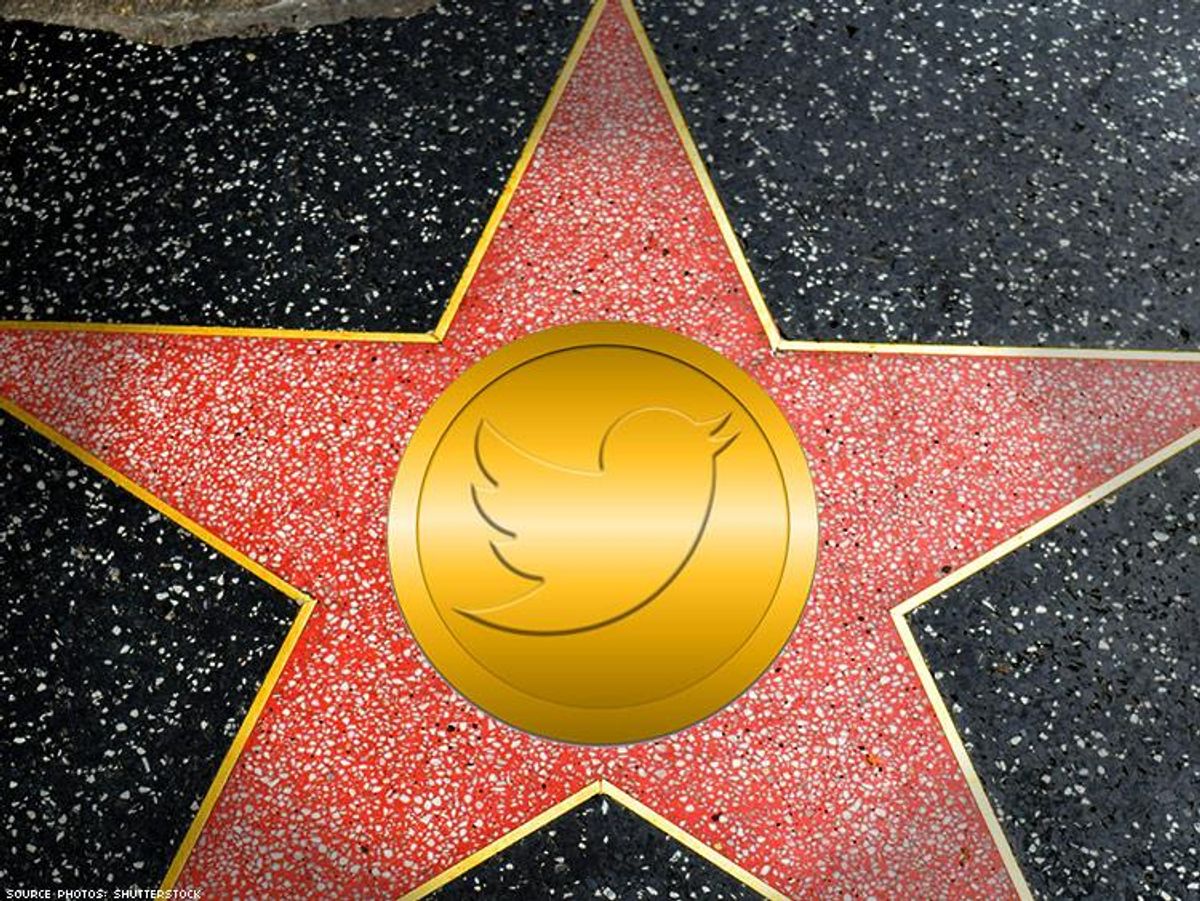Earlier this week, conservative gay Breitbart editor and well-known internet troll Milo Yiannapoulos had his Twitter account permanently suspended after he encouraged fans to engage in a campaign of harassment against Ghostbusters star Leslie Jones. While some are seeing this as a victory against the vitriolic online presence of the alt-right, the fact that it took Yiannapoulos bringing huge amounts of negative press on the Twitter organization before it finally acted represents a perfect illustration of the social media platform's tone-deafness to the constant abuse endured by noncelebrity women and minorities who use it. It's time for Twitter to take harassment against all of its users seriously.
For feminists, trans women, and others who routinely speak out against the hegemonic power of cisgender white men, getting harassed on the internet is--sadly-- a way of life. This form of abuse came to one it's uglier crescendos during the so-called "GamerGate" campaign (of which Yiannapoulos was a major figure), a movement where disaffected anti-feminist video game enthusiasts drove women from social media -- and their homes -- in a massive wave of harassment, death threats, and doxxing. In wake of GamerGate, many have written about how toxic social media has become for women, and the need for social media platforms to do more to curb abuse on their services. Unfortunately, it seems that, short of actions so egregious as to make national news, very little moves Twitter to take action against harassment and threats.
The situation with Yiannapoulos mirrors that of Chuck C. Johnson, another well-documented right-wing troll, who was allowed to continue to harass women on Twitter until went so far as to ask for money to "take out" Black Lives Matter activist DeRay Mckesson. That tweet earned Johnson a firestorm of media coverage and eventually a permanent ban from Twitter.
The question here is, why does it take an angry celebrity or a death threat against a major public figure before Twitter actually takes serious action against influential people who direct and encourage harassment campaigns? Perhaps it's that Twitter, despite all its extensive protestations to the contrary, is not actually interested in curbing the amount of abuse endured by women and minorities on its platform, but rather in curbing the amount of negative press in receives for being a hotbed of vitriol against marginalized people.
By way of example, just last month, when British Member of Parliament Jess Phillips received thousands of rape threats on Twitter, she reported them using the site's supposed antiharassment tools. After review, Twitter informed her that these tweets did not violate Twitter rules, possibly because they were carefully worded to describe in great detail the ways in which the users would not rape her. A simple trick of language allowed thousands of abusive users to remain online and continue to inundate Phillips with rape threats. The kicker? The harassment effort against Phillips began because she spearheaded a campaign to curb the harassment of women online.
Phillips is far from the only woman to be told by Twitter that rape threats aren't a violation of Twitter policy. Feminist writer Lindy West extensively documented the threats she received, and she too was told that her harassment did not amount to a violation of Twitter's rules. The problem has been so extensive that a hashtag trended in August 2014, #TwitterFail, with which users shared the numerous ways in which Twitter had failed to take action against abusive accounts.
Yiannapoulos himself has been known to the staff of Twitter as a serial harasser and abusive personality for years, but yet he continued to be a allowed to keep his account. Twitter took the extraordinarily marginal action of revoking his "verified" status in January, allegedly after tweeting at a journalist that she "deserved to be harassed."
In the statement that Twitter released following the permanent suspension of Yiannapolous, CEO Jack Dorsey acknowledged that the platform has not done enough to curb harassment and abuse, and indicated the company was "continuing to invest heavily in improving our tools and enforcement systems" and that more would be announced in the coming weeks. However, the promises of improved reporting and and rules enforcement have been coming from Twitter for years, but they've generally amounted to little more than window dressing or more useless tools do little to assist users. Will this round of promises from Twitter be any different? Given the history, it's difficult to have any optimism that things will change.
Twitter has long fancied itself a defender and advocate of free speech, and that has brought the platform to the political forefront during events such as the Arab Spring, the Iranian Green Movement, and the Ferguson protests. Unfortunately, that philosophy has also allowed a culture of free-wheeling misogyny and racism to take root throughout the service. Until Twitter begins to take harassment complaints seriously from all of its users, not just those who can generate national news coverage of their plight, there's no reason to believe that the ongoing push to drive women and minorities from the platform (and indeed, the internet as a whole) will not continue unhampered.
MARI BRIGHE is the transgender issues correspondent for The Advocate.













































































